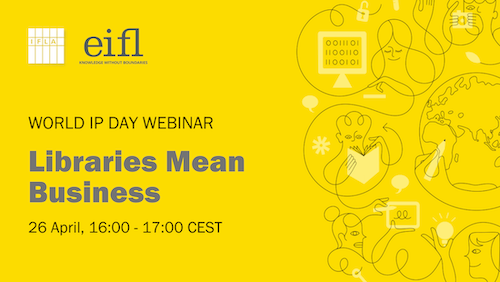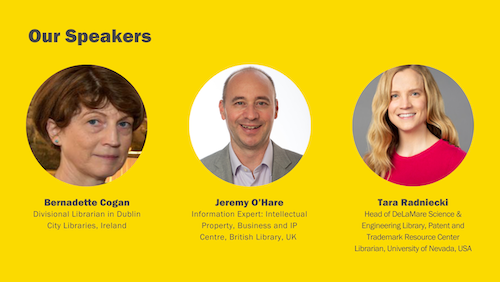This year, 22 April marks the 10th anniversary of the International Girls in ICT Day. First Introduced by the International Telecommunication Union, on every fourth Thursday in April it draws attention to the need to bring more girls and young women into tech, ICT and STEM sectors.
Over the past years, libraries in different parts of the world have taken part in the Girls in ICT Day celebrations – for example, in Kenya and Suriname. These activities build on a natural alignment between the goals of the Day, and libraries’ experiences with supporting digital literacy and equitable access to knowledge.
So, what do gender digital divides look like in 2021, and what can libraries do to help?
“Connected Girls, Creating Brighter Futures”
Estimates suggest that less than 35% of positions in the tech industry and related professions are taken by women; including only 24% of leadership positions. More broadly, there are gender inequalities in internet access and device ownership, and social and cultural norms which may still restrict meaningful access and use of ICT for women.
A recent World Wide Web Foundation report offers a more in-depth exploration of these gender digital divides. Drawing on the experiences of women in four countries in the LAC region, Africa and Asia, it highlights that:
– Data affordability is an important barrier: particularly in rural areas, women were more likely than men to say that costs limited their internet use;
– Similarly, women in rural areas more frequently cited a lack of digital skills as a reason for not going online;
– Women were less likely to create content online;
– And finally, they also expressed more concern about their privacy, and had less trust in how tech companies use their data.
These inequalities can manifest themselves early in life. Focusing on the experiences of girls and young women, another important piece of the puzzle lies in the recently released General Comment on children’s rights in relation to the digital environment by the UN Committee on the Rights of the Child. One of the key overarching principles it sets out to help realise children’s rights in digital environments is non-discrimination. This includes overcoming digital exclusion, particularly the gender-related digital divide.
Girls can, for example, face more restrictions in accessing online environments, be less likely to own a phone; or face disadvantages in developing digital skills. An accompanying explanatory note points out that, while universal personal and individual access to ICT and the internet is the preferred long-term outcome, in situations where children are unlikely to have it, states should work to expand public access offerings.
Naturally, offering this kind of shared and equitable access had long been one of the key priorities for the global library field. Overcoming gender inequalities in access to digital technologies and the internet is certainly an important step to realising the goals emphasised by the Girls in ICT Day (as reflected in the first part of its motto this year – “connected girls”). The next step, however, is going beyond connectivity and empowering more women to pursue education, learning, and careers in STEM.
How can libraries help realise this?
Overcoming gender inequalities in this field certainly requires a comprehensive response from many stakeholders. This includes, for example, making the internet a safer space for girls, creating more opportunities and incentives for young women’s participation in the private tech sector, encouraging them to follow STEM higher education tracks, and more.
As community and lifelong learning centers, libraries have been gaining experience in this field. Both before and during the pandemic, we see examples of libraries encouraging and supporting girls and women to pursue their interest in tech in many different ways. For example:
– In Singapore, the Jurong Regional Library hosted an exhibition exploring the nexus of art and technology by an all-women arts collective – with the National Library Board’s MakeIT space helping artists pick up new digital skills;
– In India, the Technology Empowering Girls program was launched to offer young women learning opportunities to develop both digital and soft skills, to help boost their career opportunities;
– In Canada, the Vancouver Island Regional Library ran a coding competition for young women and girls;
– And in several countries, libraries worked together with civil society and tech sector partners to deliver events (e.g. CoderDojo4Divas in Belgium) and clubs and courses (e.g. GirlsWhoCode in the US, UK, India and Canada), which cater specifically to girls or young women.
Inclusive and reflexive practices
Because of the multiple and structural gender digital divides, it is also important to learn from the initiatives aiming to encourage girls and women pursue their interest in IT. What works, and why? What can help overcome the different barriers girls and women may be facing?
For example, a recent article in Hello World talks about a coding club for adults in a public library in Almere, the Netherlands. The club succeeded in engaging women, who made up more than half of the participants. Mindful of the existing gender stereotypes around coding, the founder asked what they found attractive about this offer. The women pointed out that the club being run by a woman was a draw, since it offered positive social proof. Another draw was the fairly low-pressure nature of the club – prioritising fun and engagement, rather than the pressure to get things just right, helped overcome some participants’ hesitation.
Another example is the work of Libraries Without Borders on their project IdeasBox4Women. When BSF noticed lower attendance among women to their Ideas Box project, which offers access to technology and learning opportunities, they ran a diagnosis and designed an intervention specifically for women and girls.
This includes concrete measures, like setting aside women-only timeslots and organising gender-mixed activities; as well as making sure that women and girls have access to female facilitators. Another key element are activities which raise awareness about local gender inequalities and dynamics. They help draw attention to existing challenges, while fully giving local communities the space to address and act on this awareness in ways which best suit their customs and culture.
These examples show how reflexivity and mindfulness towards women’s needs can help create more inclusive spaces.
As we continue to learn from such initiatives and interventions, libraries and their partners can help create a more fair and equal digital future!


